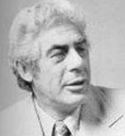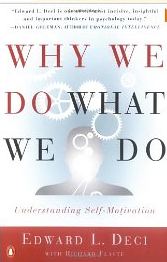Effort toward a goal may be sustained when the person is intrinsically motivated by personal commitment to a larger purpose than the goal itself.
Goal-seeking activity can also be decreased by tangible external rewards.
This interaction between internal and external motives was investigated among more than 10,000 people admitted to the United States Military Academy (“West Point”) by Yale’s Amy Wrzesniewski, Xiangyu Cong, Michael Kane, Audrey Omar, and Thomas Kolditz, with Barry Schwartz of Swarthmore.
Wrzesniewski’s team considered the long-term impact of holding both intrinsic motives (desire to serve and protect citizens) and extrinsic motives (have a respected career) on West Point cadets’:
-Promotion to commissioned officer rank,
-Extending officer service beyond the minimum required period of 5 years,
-Selection for early career promotions.
Cadets who were intrinsically motivated were more likely to accomplish these goals.
However, those who also reported extrinsic motivation were less likely to achieve these career distinctions.
A meta-analytic review of nearly 130 experiments by University of Rochester’s Edward Deci and Richard Ryan with Richard Koestner of McGill confirmed the undermining effects of extrinsic rewards from childhood through adulthood.
People may report less intrinsic motivation when extrinsic rewards are available, a trend called the “over-justification hypothesis” by Stanford’s Mark Lepper, David Greene, and Richard Nisbett of University of Michigan.
People typically view their work as being intrinsically or extrinsically motivated depending on whether they see work as a:
–Job, mostly extrinsically motivated,
-Career, some intrinsic and extrinsic motivation,
-Calling, intrinsically motivated by fulfillment from the work itself.
Volunteers reported greater satisfaction and better performance when they saw their work as a “calling,” according to Wrzesniewski’s work with Schwartz, collaborating with Bryn Mawr’s Clark McCauley and Paul Rozin of Penn.
These results suggest the value of finding meaning in work rather than focusing on positive consequences of goal achievement.
The U.S. Military has employed extrinsic motive appeals in marketing messages to recruit cadets, suggesting that military services provides “money for college,” “career training,” and enables members to “see the world.”
However, extrinsic motives tend to be associated with less career recognition and tenure than those who find meaning in the organization’s mission.
-*How do you increase intrinsic motivation when extrinsic motivation may seem more appealing?
-*What elements make your work “a calling”?
Related Posts:
- Productivity and Work Motivation Affected by Meaning, Challenge, Mastery, Ownership
- Career Navigation by Embracing Uncertainty
- “Grit” Rivals IQ and EQ to Achieve Goals
- What Evidence Supports Coaching to Increase Goal Achievement, Performance?
- Multiple Paths Toward Goals Can Motivate, then Derail Success
©Kathryn Welds
















 Pink’s later book,
Pink’s later book, 

